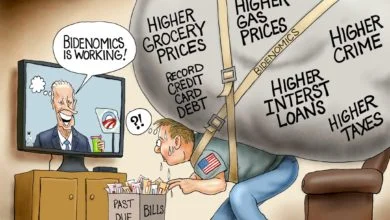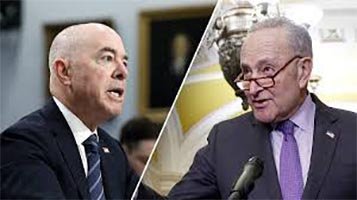As Education Decentralizes, Those Who like Control Are Nervous
As more parents gain the opportunity to abandon a compulsory schooling assignment for other options, including homeschooling and microschooling, it’s no surprise that those who favor top-down control of education feel anxious about this bottom-up education transformation. This nervousness is occurring on both ends of the political spectrum.
On the political left, The Washington Post did some pearl-clutching last week around the possibility that “no government official will ever check on what, or how well, [homeschoolers] are being taught.” On the political right, the Fordham Institute expressed similar concerns about hybrid homeschoolers and microschoolers: “To ensure that those children receive the education they deserve, it will require policymakers to craft smart laws to govern these new institutions….”
There can be a strong desire, especially in public policy, to control others by imposing on them a specific set of beliefs or preferences. In a free society, with such a breathtaking diversity of these beliefs and preferences, we must resist this urge for centralized control. We must, as FEE founder Leonard Read wrote, have “a faith in free people,” and allow individuals to make the choices that are right for them. They may make choices that we personally dislike or find objectionable, and they may similarly frown upon our choices. We don’t need to like each other’s choices, but we should embrace the freedom to choose.
The freedom to choose in education is becoming a greater reality for many families, particularly as more states introduce or expand education choice programs that enable families to access a portion of state-allocated education funding to use toward tuition at private schools, microschools (which are like modern one-room schoolhouses), and various homeschool programs, as well as toward educational therapies, tutoring services, and learning supplies.
According to EdChoice—which was founded in 1996 by Nobel Prize-winning economist Milton Friedman and his economist wife Rose to promote parental choice in education—roughly 20 million students—or about 36 percent of the overall US K-12 student population—are now, or will soon be, eligible for a choice program that enables them to exit an assigned district school for a private education option that better meets their needs.
More parents are fleeing district schools for these other options. The Washington Post recently released a detailed analysis showing that US homeschooling numbers have increased more than 50 percent over the past six years and that “a dramatic rise in home schooling at the onset of the pandemic has largely sustained itself through the 2022-23 academic year, defying predictions that most families would return to schools that have dispensed with mask mandates and other covid-19 restrictions.”
Many of these homeschoolers are enrolling in affordable microschools that offer the freedom and flexibility of homeschooling within the structure of a drop-off, teacher-led learning environment. Crossroad Trails Educational Center near Kansas City is an example of this. Launched last year by Tara Cassidy, who was a public school teacher for 17 years, Crossroad Trails is a full-time, low-cost microschool that is now at capacity with over 30 students, who are all legally recognized as homeschoolers.
“Our goal was to let parents be in control,” Cassidy told me in a recent podcast interview. “I learned, as a mom who was searching for other options, that what my kid needed wasn’t out there. And so that was my main goal: what your family needs, needs to be available to you.”
More families than ever now have the opportunity to assess their educational needs and make choices accordingly. These parents are increasingly choosing personalized, decentralized education options such as homeschooling and microschooling—often precisely because they break from one-size-fits-all standard schooling. They want the variety, customization, and abundance in education that they enjoy in all other areas of their lives that are not controlled by the government.
As Leonard Read wrote in his classic 1964 essay, The Case for the Free Market in Education: “While one cannot know of the brilliant steps that would be taken by millions of education-conscious parents were they and not the government to have the educational responsibility, one can imagine the great variety of cooperative and private enterprises that would emerge.”
We are now seeing that great variety of cooperative and private enterprises, created by everyday entrepreneurs like Cassidy to meet the diverse needs and preferences of millions of families across the US.
Top-down, government-run schooling is being steadily replaced by bottom-up, decentralized learning models. While this may make defenders of the schooling status quo on both the political left and right feel nervous, it should make the rest of us feel happy and hopeful.
Content syndicated from Fee.org (FEE) under Creative Commons license.
Agree/Disagree with the author(s)? Let them know in the comments below and be heard by 10’s of thousands of CDN readers each day!




